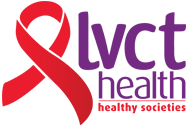In March 2019, the United Nations High Commission for Refugees (UNHCR) teamed up with the Population Council to facilitate the first regional workshop of the Africa Sexual and Gender-Based Violence Network. Held in Nairobi, the workshop brought together East Africa based UNHCR protection officers & UNHCR implementing partners with trainers from LVCT Health and three other Africa based sexual and gender-based violence focused organizations.
In times of war and conflict humanitarian agencies often register a spike in sexual violence cases. Women and girls bear the brunt of the rape, exploitation, and human trafficking that happens during armed conflict.
Men and boys also experience sexual violence and it’s often overlooked.
Rape is a war tactic, used by rebels and militia to instill fear, dominance and forcibly relocate communities. Peacekeepers and opportunistic civilians have also been reported to be perpetrators of sexual violence. Addressing sexual violence in humanitarian settings is challenging.
Sharing knowledge, ideas and successful tactics among organizations that are tackling SGBV in Africa increases the efficiency of prevention and response interventions. A successful intervention in Kenya can be replicated in Uganda and vice versa.
That is the idea behind the Sauti Project; an SGBV Africa network that will harness the resources of the various African organizations working in the area of SGBV.
Often, huge organizations like UNHCR can become rigid and unable to innovate for different populations. The Africa SGBV Network inclusion of small organizations allows for an exchange of successful evidence-based approaches that the UNHCR can replicate on a larger scale for the betterment of the communities in which UNHCR operates.
As such, the LVCT Health SGBV team carried out five days of training on two key response interventions;
1. Case Management Model for Survivors
The intervention hopes to redesign the health care system to meet the needs of survivors and ensuring survivors are tended to with the appropriate sensitivity.
2. Improving the collection, documentation & utilization of forensic evidence.
The intervention is to help survivors get justice by improving the quality of evidence as well as increasing the capacity of police officers.
This initial training paves the way for more in-depth training with field workers at UNHCR protection departments in Uganda, South Sudan, Sudan, Djibouti, and Tanzania.

1 Comment
am so happy with what you people are giving back to the society
Comments are closed.